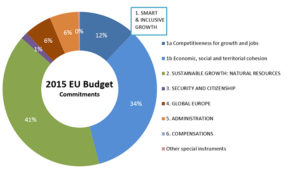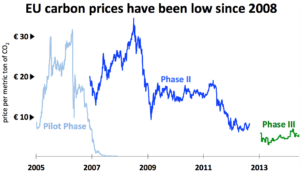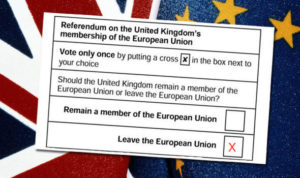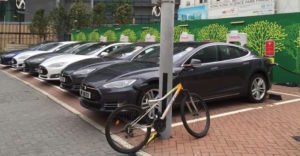
Do you know the name of the President of the EU? How about any of his 28 strong Cabinet? Me neither. (Ans: Jean-Paul Juncker and the UK nominee to his Cabinet is the famous-to-his-mother Tory politician Jonathan Hill). Europe politics is defined by its anonymity, and its considerable power wielded in near silence.
My first experience of work, in the early nineties was as an economist in UK’s Ministry of Agriculture. At the time EU was swimming in lakes of wine and buried in piles of unwanted cereal, beef, butter & milk powder, even tobacco. These were bought from farmers above the world price and disposed of, or stored at huge cost. One particularly noxious bit of analysis I did was rebadging unwanted cereals as ‘food aid’ which EU would dump onto world markets. The consequences on farmers’ livelihoods in developing countries was disregarded, such was the overarching priority to rectify EU’s short-term budgetary crisis caused by the glut. Gladly the surpluses are now gone, sadly the dispossessed farmers in Africa and South America are probably still living in some urban slum. I found those years a scary demonstration of EU’s lack of accountability to civil society and the capacity of powerful lobbyists to guard entrenched interests against the global good. The farming lobby was more adept at influencing Brussels thinking, Civil Society was simply less cunning and more parochial in the way it organises itself. WWF’s European office budget has a budget of around £3m (15% from the EU Commission). Its UK office has a budget of £61m, £9.4m of which is spent on campaigning. This isn’t a criticism of WWF. At least it publishes information on spending by its Brussels office. Others don’t bother. It probably reflects how donors want their money to be spent: more on conservation less on lobbying; more within the UK, less within Brussels. Few appreciate that agricultural & fisheries policy, and many conservation directives are made at the EU level. Our identities are largely national; we expect power to be wielded in London not Brussels (or Strasbourg, depending on which week of the month it is).
One of my projects, as a consultant at ECOTEC, was carrying out an evaluation of structural fund spending in Yorkshire. The incredibly prescriptive rules meant that instead of asking ex-miners from Yorkshire about their preferences, the ‘big picture’ objectives agreed in the Brussels sausage-machine were imposed. The rules meant spending couldn’t be on drug-rehabilitation, housing, public services or income support. Instead projects had to aid tourism, high-tech and any other favoured sectors which the latest nonsensical horizon scanning had dreamt up, had to be match-funded and big-ticket. It was great work for consultants like me but did it actually help the poor taxpayers in Yorkshire. Who knows? Here is a meta-evaluation by ECOTEC of the benefits of structural funds at around that time. The report tactfully concludes the sums of money distributed by the EU’s structural funds were not large enough to have a measurable effect. Bear in mind that ECOTEC was very much a passenger on the EU gravy train and earned well over of 50% of its income from the EU. I enjoyed great jollies flying around Madrid, Athens and Brussels on fun pan-European research projects that never achieved anything apart from educating me on how to build economic models of renewable energy economics.
So what is the EU government actually does and what affect does its actions have on the environment? Membership of the EU impinges on us in a small number of discrete ways. Here’s my list:
- Direct financial spending by the EU and contributions to the EU
- EU directives standardising product safety rules
- Single market rules impacting on Government spending
- Environmental regulations
I will mainly restrict discussion to environmental and agricultural issues.
Direct spending
UK contributes around £12.9bn to the EU (after its rebate) and receives £4.4bn – a deficit of £8.5bn. As a relatively rich country – I don’t think UK should begrudge the fact it is a net contributor to the EU budget. And the level is contribution is quite small compared to overall spending – just 1.5% of UK’s Government £730bn annual budget. By way of comparison the US Federal budget is is £2000bn, a third of total public spending. The problem with the EU budget is not its size, but its composition.

Of all the things the EU could spend money on – why is 41% of the budget still being spent on supporting farmer incomes? Why not incomes of security guards, or waitresses? They’re pretty lowly paid too. Maybe in 1957 when when the EEC was created supporting agriculture made some sense – but it hasn’t for decades, and yet the EU is so incapable of reform that 60 years later we still support ownership of agricultural land. And the way the rules are crafted is pernicious – support is £300/ha for arable land. But it drops to £200/ha for woodland. And there is no support for holdings of less than 5ha. Perhaps the UK could do with more traditional woodland landscapes and less cereal but the rules encourages maintenance of the agricultural land rather than the re-wilding of land George Monbiot so brilliantly writes about in his book Feral. Perhaps as a result the territory of Hong Kong has more biodiversity and a greater share of genuine national park than UK.
About a third of the EU budget is spent on helping reducing regional inequality. Historically, and quite correctly, UK as a rich country has received only a small share of structural funds: recipient regions include Northern Ireland, Highlands, West Wales, Yorkshire have. The bulk of money was spent in the Portugal, Ireland, Spain and Greece countries, and more recently in the Central and Eastern European (CEE) countries. The transfer to Poland is worth around €500 per person per year. But stepping back a little why do we shower these particular countries with money? Do British feel really have such a close affinity to CEE nations. For historic and familial reasons many people in the EU – myself included – have closer links with nations in African, Asian and South America. I would rather money be spent on global development issues rather than within the Club of Brussels.
EU single market regulations
EU sets product standards to ensure goods can be freely traded within the single market. These standards primarily govern product safety, but also environmental considerations, covering allowed emissions from road vehicles, and energy labels on electrical appliances. These often get parodied and lampooned in the press. In my own experience I think these have been a resounding success. They have forced manufacturers wanting to sell into the 500 million people EU market to adopt tough health & safety and environmental performance standards. Here in HK I cite these standards to officials and regulators. The Euro V standard is used as a benchmark performance standard for road fuels sold in HK, a surprising externality from the EU’s excellent standard setting work!
So no complaints from me on this score.
Government procurement rules & State Aid Rules
EU rules on public procurement and state aid have a huge impact on member states budgets, dwarfing the direct contributions into, and from the EU. The rules are set up to force government to open up tendering Europe and prevent subsidising local firms in a way that distorts EU competition.
This means that the 14% of EU GDP attributable to Government contracts covering waste services, contracted out health and education services, publicly funded infrastructure have to be offered on open tender across Europe. These rules apply to relatively small tickets items of 200,000 or more. Around 160,000 tenders a year are published on the Office Journal (OJEC), around 10% of these are from UK / Ireland. The rules greatly protract the awarding of contracts that are annoying to tenderer and firm alike. This complexity is off-putting to many small companies and are routinely won by big firms with specialist departments that know the ropes.
State Aid Rules forbid member governments from paying more than €200,000 support over three years to any firm without prior approval from the EU. Approval is only given if there is market failure or a general economic interest argument to the State Aid.
But what exactly is wrong with Government’s using taxpayer money to help their nation’s businesses? Why should the EU Commission’s KPI to ever extend the single market override a nation’s prerogative to stimulate the development of sectors or local firms. Policy makers are fond of saying Government is bad at picking winners. This is a point of view, not an empirically confirmed fact. Read Ha-Joon Chang’s excellent books which highlight how the Asian tigers like South Korea grew using levers like procurement and state aid. Major contracts like building rolling stock for London Underground can help retain jobs in deprived areas. They can stimulate restructuring of the economy helping a depressed region pick itself up. Why should Government sit around twiddling its thumbs while the EU Commission opines about the public interest merits of support for an ailing business or industry?
The State Aid and Public Procurements rules are an affront to the reason why people elect their Government. Maintaining the jobs and livelihoods of its people is one of the basic functions of our elected Government.
Regrettably, WTO rules impose similar, but thankfully weaker, restrictions on Government to support its local economies. Also its enforcement powers and institutions are much weaker than the EU Commission’s.
EU’s environmental regulations
Through its environmental directives the EU have a pervasive impact on UK regulations. For instance, the Industrial Emission Directive and its predecessor directives have been applied to emissions from power stations and factories. Similar Directives apply to emissions to water, bathing water, waste going to landfill. Brussels also sets targets for the share of renewable energy production and energy efficiency.
Proponents of the EU argue UK will repeal these environmental policies given the chance. I am less pessimistic about UK citizen’s sense of priorities. It is important to recognise that many of the environmental targets are not negotiated and set by the EU but by broader regional groupings of countries. Air emissions targets are agreed by the UN-ECE in Geneva, covering not just Europe but also North America. I was fortunate enough to involved first hand in these discussion in the 1990s. The UN-ECE oversaw excellent science based targets looking at the damage caused by acid rain, and then set necessary reductions in targets. EU’s directives are merely a mechanism for implementing increasingly stringent environmental UN-ECE targets.
Similar pan-regional bodies exist for protecting fish stock in the North Atlantic (ICES) and marine pollution (OSPAR). Countries like Iceland have adopted different and more successful policies to manage fisheries than the EU – making use of tradable quotas and banning discards of by-catch.
While much EU environmental regulation is effective, some is not. But EU’s decision making process to correct inevitable errors is sclerotic, and its ability to reform itself pitiful. The graphic below shows the ignominious failure that is the EU-ETS. After eleven years, and three phases the EU, still fails to set meaningful ‘caps’ on emissions and permits member states and emitters with vested interests to continue emitting carbon with near impunity. Yes, EU’s share of renewables in electricity generation has grown over recent years, but this has been at the expense of gas and nuclear, not of coal! This relative growth in coal use is testament to the failure of the EU-ETS.
 And worse, the EU’s ineffective policy on carbon emissions crowds-out progress on a genuinely effective policy like carbon taxes. I am highly supportive of George Osborne’s carbon floor price. This is a top-up tax on the EU-ETS which steadily rises over time. It provides the electricity sector a strong and unambiguous future path on the price on emissions guiding both fuel choice and investment decisions. Instead of embracing policies that work, to his shame the EU climate Commissioner continues to speak against the carbon floor prices because the EU does not have legal competence over taxation. Never mind that it works, its problem is it wasn’t invented here!
And worse, the EU’s ineffective policy on carbon emissions crowds-out progress on a genuinely effective policy like carbon taxes. I am highly supportive of George Osborne’s carbon floor price. This is a top-up tax on the EU-ETS which steadily rises over time. It provides the electricity sector a strong and unambiguous future path on the price on emissions guiding both fuel choice and investment decisions. Instead of embracing policies that work, to his shame the EU climate Commissioner continues to speak against the carbon floor prices because the EU does not have legal competence over taxation. Never mind that it works, its problem is it wasn’t invented here!
So that was my list of reasons why I think UK should leave the EU. Many of these arguments aren’t so much reasons for UK leaving per se, but reasons for the EU either ceasing to exist, or doing much less. It’s what I’ve believed for most of my professional life.
Eighteen months ago I moved to Hong Kong and my perspective has shifted. I recognise the EU Commission does some things well like: setting product safety and environmental standards, allowing free movements of goods and people, and much of its environmental regulations. It does other things badly.
Though I don’t feel particularly European and have only the haziest recollection of who Jean Monnet is – I do recognise and appreciate the EU super-state is a fairly benign institution. The same cannot be said for China. Over the past fifty years, through the repression of its people the State has killed many people. The world’s most potent super-power US has also caused its fair share of misery over the past fifty years bombing, imposing sanctions, or overthrowing tens of regimes. The EU super-state has never shown that sort of murderous repression to its own or other country’s people.
One source of nervousness about leaving the EU is whether UK’s departure will cause a disintegration of the EU and leave China and US as the only superpowers. I prefer the European way. My other source of disquiet is what a UK outside the EU will look like. Listening to pro-Brexit campaigners I am repelled by their arguments. They are often anti-immigrant/refugee, pro-small Government and pro-free trade. This isn’t my agenda.
Where are the political leaders like Tony Benn who used to champion the progressive case for leaving the EU? Though I don’t much like the EU, remaining seems less less bad than having the UK led by the present pro-Brexit leadership. Hopefully over time the xenophobes and libertarians will be replaced by a more benign leadership, but I do worry about the current absence of the progressive pro-Brexit voice.
This isn’t a great reason to vote Remain, but one I bizarrely and unexpectedly find myself being drawn to. June 23rd…what should I do? Do please offer your own thoughts.




 And worse, the EU’s ineffective policy on carbon emissions crowds-out progress on a genuinely effective policy like carbon taxes. I am highly supportive of George Osborne’s carbon floor price. This is a top-up tax on the EU-ETS which steadily rises over time. It provides the electricity sector a strong and unambiguous future path on the price on emissions guiding both fuel choice and investment decisions. Instead of embracing policies that work, to his shame the
And worse, the EU’s ineffective policy on carbon emissions crowds-out progress on a genuinely effective policy like carbon taxes. I am highly supportive of George Osborne’s carbon floor price. This is a top-up tax on the EU-ETS which steadily rises over time. It provides the electricity sector a strong and unambiguous future path on the price on emissions guiding both fuel choice and investment decisions. Instead of embracing policies that work, to his shame the  The first Tesla I saw was wrapped around a lamp-post near my home in North London. The attending, couldn’t-be-more-amused, policeman, said the owner’s wife had taken it out for a spin not appreciating the beast’s acceleration. I couldn’t work out from his poker face whether he was trying to be funny.
The first Tesla I saw was wrapped around a lamp-post near my home in North London. The attending, couldn’t-be-more-amused, policeman, said the owner’s wife had taken it out for a spin not appreciating the beast’s acceleration. I couldn’t work out from his poker face whether he was trying to be funny. Nice blog by a staffer at Bank of England on ‘
Nice blog by a staffer at Bank of England on ‘